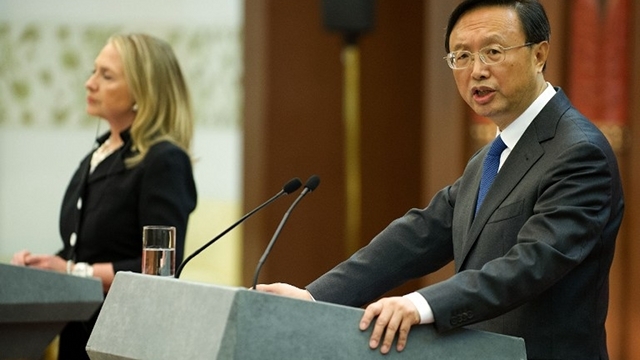SUMMARY
This is AI generated summarization, which may have errors. For context, always refer to the full article.
MANILA, Philippines – What right does China have to assure the region’s freedom to navigate the South China Sea?
The Philippines’ Department of Foreign Affairs (DFA) on Thursday, September 6, questioned China’s recent assurance of “freedom and safety of navigation in the South China Sea.” The DFA noted this statement with “guarded optimism,” and sought an explanation from China.

In the first place, the DFA said freedom of navigation is a customary right under international law – in particular under the United Nations Convention on the Law of the Sea (UNCLOS), the key UN document on maritime affairs. “Its existence does not depend solely on the will or assurance of one or any individual state,” the DFA said.
“No state can arrogate unto itself the unilateral right to determine or assure the existence or non-existence of the freedom of navigation in the West Philippine Sea (South China Sea),” the DFA explained. “Rather the freedom of navigation is an established right that commands respect from everybody as a matter of international obligation.”
‘Serious concern’
China’s statement merits acceptance, the DFA said, if it means China is indicating that it recognizes and will abide by its obligation under international law, particularly UNCLOS.”
But it should be a “cause of serious concern” and objection if it means China is affirming its claim over the entire South China Sea, and “making it appear that it is the sole guarantor of freedom of navigation.”
The DFA maintained that China’s claim over the South China Sea, established through the so-called 9-dash line, is an “excessive” claim that violates international law.
“What if China refuses or withdraws such assurance, does that mean that the freedom of navigation does not exist in the West Philippine Sea? We wish to seek a clarification on this,” the DFA said.
‘No issue’
China, through Foreign Minister Yang Jiechi, made the statement on freedom of navigation Wednesday, September 5, during a news conference with US Secretary of State Hillary Clinton.
“For China and our neighboring countries, the South China Sea is really a lifeline for exchanges, trade and commerce,” Yang said. “There is no issue currently in this area, nor will there ever be issues in that area in the future.”
In the same event, Clinton said reaching a code of conduct on the South China Sea is in “everyone’s interest.”
US President Barack Obama had also called for freedom of navigation when Philippine President Benigno Aquino III visited the US in June.
On Friday, September 7, Aquino will fly to Russia for the 20th Asia-Pacific Economic Cooperation (APEC) meeting, and is expected to meet with Chinese President Hu Jintao to discuss South China Sea issues. The DFA, however, said the meeting remains unconfirmed. – Rappler.com
Add a comment
How does this make you feel?
There are no comments yet. Add your comment to start the conversation.